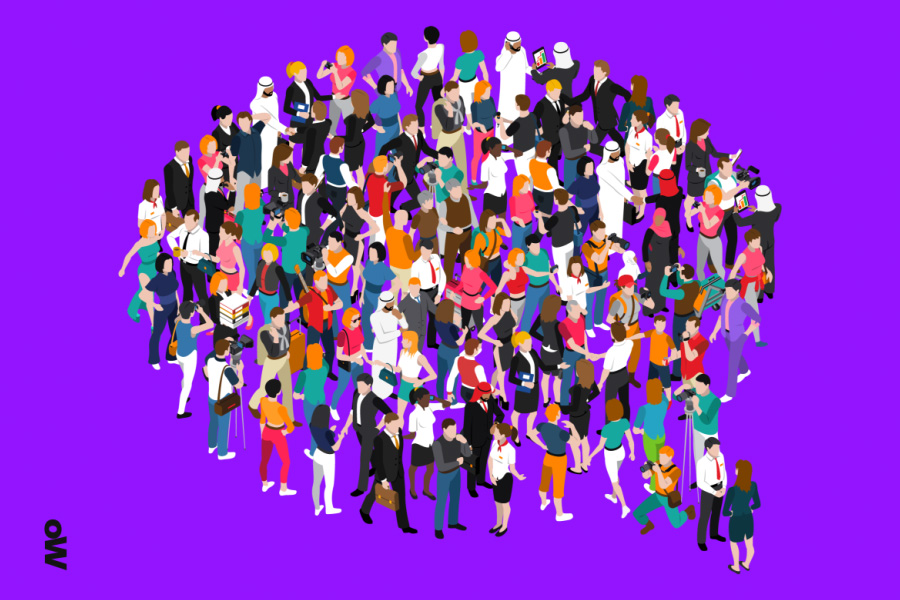Quiz: Am I Hypersexual?

Hypersexuality is a complex condition that affects all spheres of a person’s life: physical, emotional, social, and even spiritual. Many people are embarrassed to talk about their sexual problems, fearing judgment and stigma. Our quiz is the first step towards recognizing the problem and finding a solution. Let’s dive into this topic deeply and comprehensively.
What Is Hypersexuality?
Hypersexuality, also known as sex addiction or compulsive sexual behavior, is a disorder characterized by excessive sexual thoughts, desires, and behaviors that cause significant distress and impair a person’s quality of life.
It’s important to understand that hypersexuality is not just high libido or love for sex. Many healthy people have an active sex life and periods of increased sexual desire. However, with hypersexuality, thoughts about sex and sexual activity spiral out of control and begin to interfere with normal life. A person becomes so obsessed with sex that they are willing to risk relationships, work, health, and well-being to satisfy their desires.
Hypersexuality is a relatively new and controversial diagnosis. It is not included in the current version of the DSM (Diagnostic and Statistical Manual of Mental Disorders), but many experts recognize it as a real and serious disorder. Some estimates suggest that hypersexuality affects 3-6% of the population, although the real numbers may be higher due to stigma and people’s reluctance to seek help.

Signs and Symptoms of Hypersexuality
How do you know if your sexual behavior has become problematic? Here are the main signs of hypersexuality that are assessed in our quiz:
- Constant and obsessive thoughts about sex that interfere with daily life. You can’t focus on work, study, communication, because your thoughts keep returning to sexual fantasies and memories.
- Excessive time spent on sexual activity at the expense of other areas of life. You spend hours browsing pornography, masturbating, having sex with random partners, visiting strip clubs and sex chats. This time is stolen from your relationships, work, hobbies, sleep, and other basic needs.
- Inability to control or limit sexual behavior, despite attempts and promises to yourself. You feel helpless against your desires, as if they control you.
- Continuing sexual activity despite negative consequences for physical and mental health, relationships, reputation, finances, or even breaking the law. Your behavior has already led to serious problems, but you can’t stop.
- Using sex as a way to cope with stress, anxiety, depression, boredom, loneliness, or other unpleasant emotions. Sex has become a kind of self-medication, an escape from reality.
- Escalation of sexual behavior. Over time, you need more and more sexual activity to get the desired effect. You seek out new, more intense, or riskier forms of sexual gratification.
- Lying and secrecy about your sexual behavior. You lie to your partner, family, and friends about what you do and how much time you spend on it. Leading a double life.
- Feelings of shame, guilt, self-disgust because of your sexual behavior. You don’t get real pleasure from sex, and after it you feel emptiness and sadness.
If you find most of these signs in yourself, chances are you suffer from hypersexuality. Of course, an online test is no substitute for professional diagnosis. However, the results of our quiz can be the impetus to seek help and start changing your life.

Causes and Risk Factors for Hypersexuality
Why do some people develop hypersexuality? As with other behavioral addictions, there is no clear-cut answer. Current research suggests a complex interplay of biological, psychological, and social factors.
From a biological standpoint, changes in the reward system and areas responsible for impulse control may be observed in the brains of people with hypersexuality. The role of genetics, hormones, and neurotransmitters is being discussed. Hypersexuality is more common in people with conditions such as ADHD, bipolar disorder, and obsessive-compulsive disorder.
Psychological factors include unresolved childhood traumas, especially sexual abuse, problems with attachment and trust, difficulties expressing emotions and intimacy. Many people with hypersexuality have other mental disorders – depression, anxiety, personality disorders, a tendency to other addictions.
Social triggers of hypersexuality include loneliness, stress, conflicts in the family and relationships. The overavailability of pornography and online sex, and oversexualization in the media also contribute, although a direct link has not been proven.
Being in a risk group does not mean you are doomed to hypersexuality. But if you have these factors, you should pay more attention to your sexual behavior. Our quiz will help you see the “red flags“.

Conclusions
Hypersexuality is a serious disorder that causes real suffering and ruins lives. If our quiz has shown that you may have signs of it, please take it seriously. You are not alone, you are not a bad person, and help is available to you. Seek out a psychotherapist, a sexologist, look for a support group. The path to healing may not be easy, but it is worth it.
Remember that healthy sexuality is a wonderful part of life. Sex should bring joy and connection, not shame and suffering. If your sexual feelings and behaviors have gotten out of control, you have the right to regain that control and start living life to the fullest. And our quiz is the first step on that journey.
Questions Overview
- Rarely, can easily concentrate
- A couple of times a day, but quickly return to tasks
- Need to take breaks every hour
- Constantly, can't focus on tasks
- Can handle any duration calmly
- Become irritable after a week
- Feel discomfort after 2-3 days
- Can't handle even a day
- Less than 15 minutes or don't watch at all
- 30-60 minutes
- 2-3 hours
- More than 4 hours
- Almost never
- Sometimes in romantic settings
- Regularly in public places
- Constantly, even at work/school
- Never
- Sometimes spend on dates
- Regularly buy intimate accessories
- Spend a significant part of budget on satisfying desires
- Never
- Rarely, after casual encounters
- Often, but continue anyway
- Constantly, but can't stop
- As long as needed
- Several months
- Couple of weeks
- Maximum couple of days
- Rarely
- Sometimes when stressed
- It's my main way to fight negative emotions
- Constantly, it's the only thing that helps
- 0-1
- 2-4
- 5-10
- More than 10
- Never
- Rarely, in special cases
- Regularly late because of this
- Constantly missing important events
- As long as necessary
- Up to a month
- Maximum a week
- No more than a day
- Never
- Rarely, but with protection
- Regularly take risks
- Constantly neglect safety
- 0-1 times per day
- 2-3 times per day
- 4-6 times per day
- More than 6 times per day
- Rarely
- Several times a week
- Several times a day
- Constantly, with everyone I meet
- None
- 1-2 dating apps
- 3-5 different apps
- More than 5, including specific ones
- Only when appropriate
- Regularly with close friends
- In most conversations
- It's the main topic of all conversations
- Minimum or nothing
- Up to 10% of income
- 25-30% of income
- More than 30% of income





